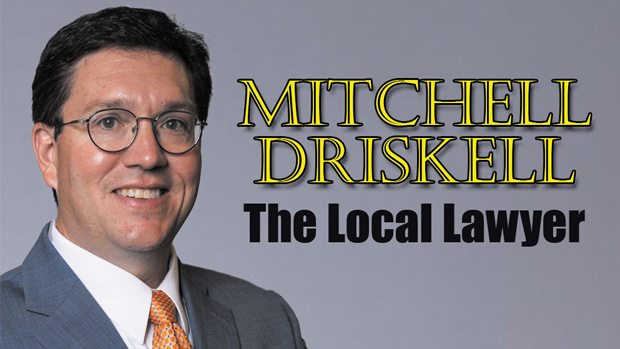
Stupid But Constitutional
Supreme Court Justice Antonin Scalia (who loved Oxford and Mississippi by the way) once said that he wished every federal judge had a stamp on his or her desk that said “Stupid but Constitutional” for use when examining local laws and ordinances that were being attacked in Court. Scalia’s point was that judges are not supposed to decide if a law is good or bad, well-intended or not, effective or not, etc. Scalia believed that Judge’s personal opinion about the moral, ethical, economic, or other value of a law should never matter, instead, the only role the Judge was supposed to play is deciding whether the law is allowable under the rules of the Constitution.
The “Stupid but Constitutional” stamp gives judges a method of following the Constitution while also voicing his or her personal opinion and expressly showing the public what the public is supposed to remember from civics class —that by deciding a law is constitutional a judge is in no way whatsoever saying that the law is “good” nor making any value judgment whatsoever. The media, in particular, needs to be reminded of this aspect of our system of checks and balances. American courts do not sit in judgment over the wisdom or value of a law passed by an elected legislative body (a/k/a “the people”). All the Courts do is decide if our constitutional system allows the law to exist.
At least that is the way things are supposed to work, and the way Justice Scalia always wanted it to work. Scalia felt that judges too often let their opinion that the law was “stupid” affect the judge’s decision about whether the law was constitutional. Remember, those are two very different questions, and judges, like our Supreme Court, only look at constitutional.
Dobbs Burst the Bubble Zone
After the Dobbs decision, many southern states passed laws restricting abortion. Illinois, however, has fairly unrestrictive abortion laws. At the southern tip of Illinois, as close to the South as you can get in Illinois, sits Carbondale, a town of 20,000 people where two abortion clinics have opened since Dobbs, and Planned Parenthood plans to open another clinic soon. Most of the Carbondale clinics’ patients are from out of state, and some call Carbondale an “abortion hub” for the southeastern part of the United States.
Anti-Abortion volunteers (they call themselves “counselors,” and those against them call them “protestors”) began to be a presence around the clinics in Carbondale, carrying signs, singing, passing out pamphlets. Then, this January, the Carbondale City Council unanimously passed an ordinance that people are prohibited from giving educational materials, displaying a sign to or engaging in “oral protest, education, or counseling,” within eight feet on any person near an abortion clinic unless given permission. Courts call this kind of law a “Bubble Zone” since it creates a moving bubble around a person, such as a woman going to get an abortion, where she cannot be handed a pamphlet or offered any advice or asked any questions and gives her personal space to enter and leave the facility.
Carbondale’s Bubble Zone ordinance was copied word-for-word from the laws of Chicago and Colorado, both laws have been upheld in Federal Court as constitutional, so, under current precedent, the Carbondale law is legit. But a Pro-Life group has sued to have the law held an unconstitutional violation of the counselors/protestors’ right of free speech. In Dobbs decision, the Court dropped a footnote suggesting that the decision will result in the reversal of tons of abortion-adjacent constitutional decisions. The Court noted what some call the “Abortion Distortion” of past cases where abortion rights wrongly trumped other constitutional rights—and the Court referred to these Bubble Zone cases as an example.
Pro-Life groups who want to remove laws restricting their access to clinics and patients took the hint and pounced with a lawsuit the minute a new Bubble Zone ordinance was passed. Welcome to The Show, city attorney for Carbondale, Illinois. In another recent abortion-adjacent case, a Clearwater, Florida, ordinance provides a five foot “Buffer Zone” between any counselor/protestor and the driveway of the abortion clinic. The city says the clinic is on a busy street and the patients need to be able to turn into and pull through the driveway quickly. “Unconstitutional!” the Thomas More Society says (the same pro-life organization suing Carbondale about the bubble zone). The Society acknowledges that a five-foot safety zone is reasonable but says that since clinic workers can enter the five foot zone, then preventing the counselors/protestors from the zone is viewpoint discrimination. The City counters by saying that clinic workers help people to and from their cars before and after appointments, the distinction is functional not viewpoint.
Untold thousands of dollars will be spent by charitable organizations and taxpayers over this five foot zone, yet no charity or government will pay to send addicts to rehabilitation instead of prison. The bigger picture legal picture here is that the Thomas More Society and other pro-life organizations are going to re-litigate dozens of issues that were decided during the reign of Roe in an attempt to build new case law under Dobbs. Dobbs was just the beginning.
Mitchell Driskell practices law with the Tannehill & Carmean firm and has been an Oxford lawyer for twenty-two years. You can call him at 662.236.9996 and email him at mitchell@tannehillcarmean.com. He practices criminal law, civil law, and family law.

